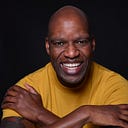Member-only story
Why I Refuse to Ever Take Another Edit Test
Job recruitment used to be about finding superior talent. Now it’s just ticking boxes.
It’s taken nearly 15 years, but I now realize just how good I had it during the first half of my career. I graduated from the University of Florida in Gainesville in May of 1991 with a bachelor’s degree in Magazine Journalism, and by August of the same year, I was an intern at People magazine, nine months away from becoming the youngest person on staff.
Several days after graduation, I packed up my white 1980 Toyota Tercel and drove to Charlotte, North Carolina, to begin my summer internship at the Charlotte Observer. Part of what got me through that long, hot summer working for a satellite Observer paper in Monroe, a town so small at the time it didn’t have a local bar, was the impending realization of my New York City dream. One evening while having drinks with a visiting college friend in downtown Charlotte, I was telling him about my upcoming People gig when a lady sitting beside us interrupted me.
“What? You’re going to be working at People magazine? At your age? That’s the kind of place people spend their entire career trying to get to.”
Her enthusiasm flattered and inspired me. It immediately made me feel better about working for a publication…
